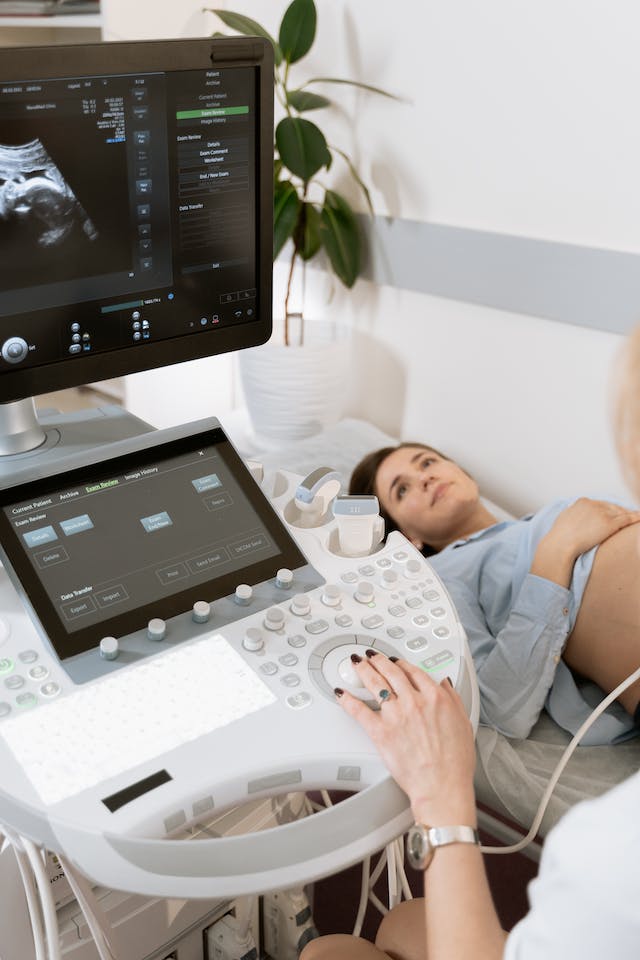BRI REPRODUCTIVE IMMUNOLOGY
DR. ANDREA VIDALI
155 East 76th Street
Suite 1H
New York, NY 10021
Recent Blog Posts
Request Your CONSULTATION
Click below to request a Consultation with Our Medical Team. He will review your history so that together you and he can determine your need for our services.
Endometriosis in Teenagers: Recognizing Symptoms and Seeking Support

In this blog post, we’ll explore endometriosis in teenagers, its symptoms, and the importance of seeking timely support. Endometriosis is a complex and often misunderstood condition that affects women’s reproductive systems. While it’s most commonly diagnosed in adults, it can also affect teenagers. Recognizing the symptoms of endometriosis in teens and providing them with the support they need is crucial for their well-being.
Understanding Endometriosis in Teens
Endometriosis is a condition where tissue similar to the lining of the uterus (endometrium) grows outside the uterus, causing pain and other symptoms. While it’s more commonly diagnosed in people aged 25 to 40, it can start during the teenage years.
Common Symptoms in Teens
Recognizing the symptoms of endometriosis in teenagers can be challenging because they may overlap with typical menstrual discomfort. However, if your teen experiences the following symptoms consistently, it’s essential to seek medical advice:
- Pelvic Pain: Persistent pelvic pain, often worsening during menstruation, can be a sign of endometriosis.
- Heavy Menstrual Bleeding: Unusually heavy menstrual bleeding, known as menorrhagia, may occur.
- Painful Periods: Severe menstrual cramps that interfere with daily activities are a common symptom.
- Gastrointestinal Symptoms: Endometriosis can cause digestive issues like diarrhea, constipation, or bloating, especially during menstruation.
- Painful Intercourse: Teens with endometriosis may experience pain during sexual intercourse.
- Fatigue: Chronic fatigue not relieved by rest can be associated with endometriosis.
Seeking Support and Medical Evaluation
If your teen exhibits symptoms, they should seek a medical evaluation and consider these factors:
- Consult a Specialist: Schedule an appointment with a doctor who specializes in adolescent gynecology or endometriosis. Early diagnosis is key to managing the condition effectively.
- Open Communication: Encourage your teen to communicate openly about their symptoms. Create a supportive and non-judgmental environment where they feel comfortable discussing their health.
- Pain Management: Discuss pain management strategies with your healthcare provider. They may recommend over-the-counter pain relievers or prescribe medications to alleviate discomfort.
- Lifestyle Modifications: Encourage a healthy lifestyle that includes regular exercise, a balanced diet, and stress management techniques. These practices can help manage endometriosis symptoms.
Supporting Your Teen
 Supporting your teen through an endometriosis diagnosis is crucial for their well-being. Some important factors to consider when supporting your child through this condition:
Supporting your teen through an endometriosis diagnosis is crucial for their well-being. Some important factors to consider when supporting your child through this condition:
- Emotional Support: Acknowledge your teen’s feelings and emotions. Endometriosis can be emotionally challenging, and providing a safe space for expression is vital.
- Education: Help your teen understand their condition. Provide age-appropriate resources and information about endometriosis, its treatment options, and the importance of self-care.
- Advocate for Their Health: Be an advocate for your teen’s health. Ensure they receive appropriate medical care and follow-up appointments.
- Empower Them: Encourage your teen to take an active role in managing their health. Teach them how to track symptoms and communicate effectively with healthcare providers.
Endometriosis in Teenagers: Conclusion
Recognizing the symptoms of endometriosis in teens and providing them with the necessary support and medical care is crucial for their well-being. With early diagnosis and a comprehensive treatment plan, teens with endometriosis can effectively manage their condition and enjoy a better quality of life. Remember that seeking timely support is key to addressing endometriosis in teenagers.
Contact Information:
Dr. Andrea Vidali
Endometriosis Treatment Center
308 Willow Ave
First floor, C/O Women’s Center
Hoboken, NJ 07030
516-584-8710
Endometriosis can affect teenagers, and early recognition of symptoms and seeking support is vital for their well-being. By providing guidance, understanding, and access to medical care, you can help your teen manage endometriosis effectively.
